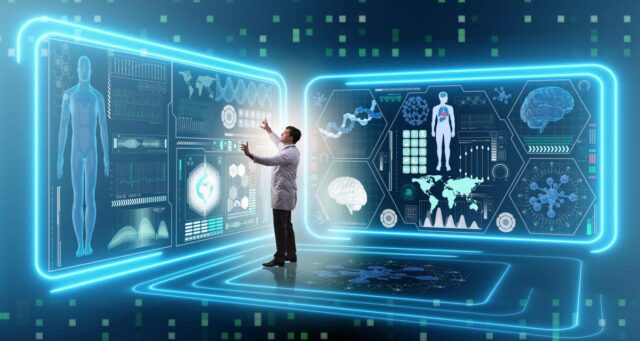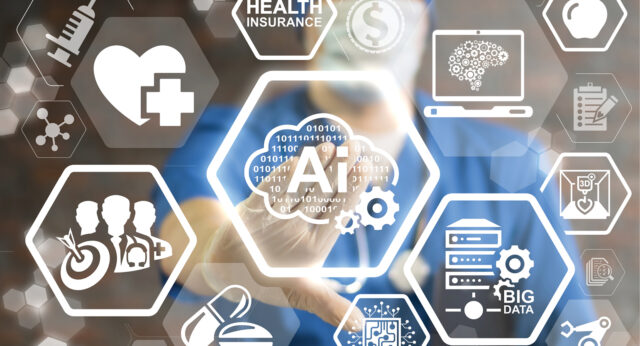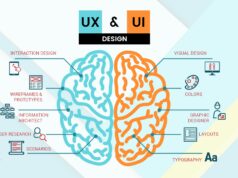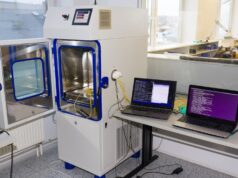
The healthcare industry is rapidly changing in the wake of the digital revolution. And just like in other fields, players in the healthcare space are leveraging the power of Artificial Intelligence (AI).
AI is a powerful tool, capable of revolutionizing healthcare and transforming the way we manage and treat diseases. This technology can enhance accuracy, speed up treatments, reduce costs and help healthcare professionals make better decisions. It can also improve the delivery of services, such as early detection and diagnosis, while also improving healthcare operations.
In this article, we will take a look at the various ways healthcare AI software is transforming the healthcare industry, and the many benefits it can bring to patients and healthcare professionals alike.
Healthcare AI Software; An Overview

AI has been around for decades, but only recently has technology advanced enough to make it a reality. AI software runs on the concept of machines mimicking human intelligence, including learning and problem solving. With machine learning, computers can “learn” from data, identify patterns, and find correlations.
Computers can also process massive amounts of information very quickly and make data-driven decisions. As such, healthcare AI software is designed to complete various tasks that would otherwise require human intelligence.
Here are some of the benefits you can expect from healthcare AI software:
Benefits of AI for Big Pharma
Help in Diagnosis and Treatment

Artificial Intelligence is helping doctors by providing them with more accurate and timely diagnosis. Thanks to image recognition algorithms, doctors can now analyze images of tissue samples and lesions, making it easier to identify diseases and prescribe the right treatment.
The software can also help predict the probability of a patient’s condition deteriorating, which will enable doctors to take appropriate steps to avoid the worst outcome. It can help track patient status and progress by analyzing data, such as blood pressure, cholesterol levels, and blood glucose levels while considering factors like the patient’s age, gender, and pre-existing conditions.
AI can also help doctors identify drug-related risks, including adverse side effects and drug interactions, which could help identify new treatments and save lives.
Help in Administrative Tasks
Artificial Intelligence is helping doctors and healthcare organizations to improve administrative processes by automating workflows. For instance, non-medical staff can use AI to track inventory, manage appointments, analyze medical claims and billing data, and identify potential fraud.
This can help healthcare organizations reduce costs associated with hiring and training new employees by taking over administrative tasks.
Help Provide Personalized Care

Artificial Intelligence could revolutionize the way we approach health care by providing personalized treatment approaches. For example, machine learning algorithms can “learn” from patient data and identify patterns, which will enable AI to make better recommendations.
AI can also help improve the way patients manage their health by tracking their progress, providing reminders to take medications, and recommending healthy lifestyle changes. This can go a long way in ensuring better health outcomes and reduced operational expenses.
Furthermore, healthcare AI software can help healthcare professionals monitor patients remotely by tracking data, such as blood pressure and heart rate, which could identify health problems before they become critical.
Help in Research and Drug Development
Artificial Intelligence can help researchers identify the most effective dosage for medications, and also potential side effects before new drugs are approved for public consumption.
AI can also help researchers identify new drug combinations, which can improve treatment outcomes. This can save a lot of time and money that would have otherwise been spent on medications that won’t work.
Help in Healthcare Data Security and Privacy
By leveraging the power of AI, healthcare organizations can ensure that they are meeting the highest standards of data privacy and security.
For instance, the software can help healthcare organizations secure patient data by identifying areas of improvement such as security gaps and making improvements before hackers take advantage of them. This can help the hospital avoid costly lawsuits, reputational damage, and getting in trouble with the relevant legal authorities.
Tips to Effectively Leverage Healthcare AI Software
Understand How AI Works

The first thing you need to do is understand how AI works. This will help you figure out how to leverage the technology.
There are several different types of AI software that you can use in healthcare, with the most notable being machine learning and natural language processing.
Machine Learning is the process by which a computer program learns with experience. It is designed to take a large amount of data, identify patterns, and use those patterns to predict future outcomes.
Natural Language Processing (NLP), on the other hand, is the process of computer software that analyzes human language and understands its meaning based on the context.
Identify the Issues AI Can Help You Solve
Next, you need to identify the issues that AI can help you solve. In a healthcare context, AI can help solve a variety of issues including but not limited to – increasing the quality of care, improving the accuracy of diagnosis, reducing treatment time, and improving doctor-patient communication.
Hire AI Experts
When you are hiring AI experts, make sure that they understand your business model and are capable of solving the issues that you identified earlier. Always check their credentials and speak to their previous clients to understand the quality of services that they provide.
Remember to choose AI software with impressive functionality and a seamless user interface. You should also make sure that the software is scalable and can be integrated with your existing systems.
In Conclusion

Artificial Intelligence is becoming a hot topic in the healthcare industry, with many claiming it could be the key to unlocking better patient outcomes and lower costs. As such, many hospitals are increasingly turning to AI so they can provide better healthcare to their patients.
As explained earlier, AI can provide better and faster diagnoses, and help healthcare professionals make more informed decisions. Doctors can have 24/7 access to health records and track patients remotely, which can reduce travel time and costs.
AI can be used to improve the delivery of administrative services by fast tracking solutions and reducing wait times. The software can also help healthcare operations by improving compliance, reducing errors, and identifying areas in need of improvement.
With Artificial Intelligence, healthcare is changing for the better, and it could very well be the key to a healthier future.









